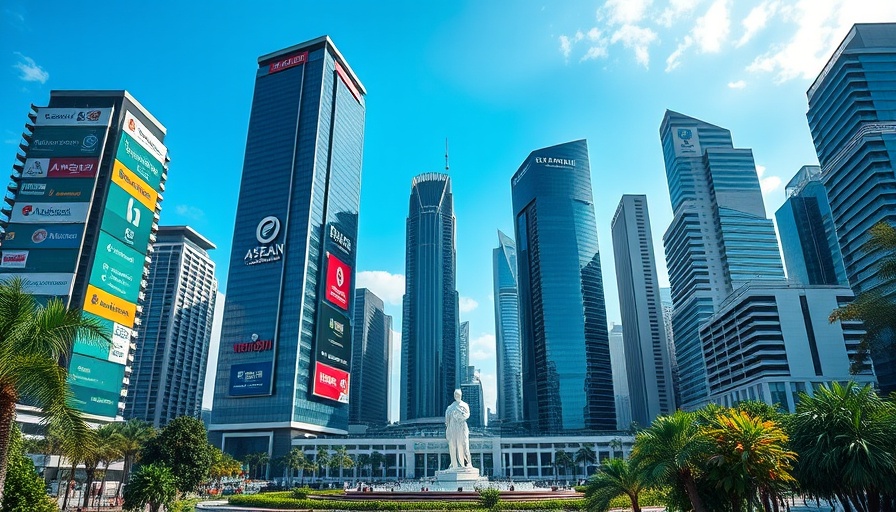
The Resilience of ASEAN Banks in the Face of Climate Change
In a rapidly changing global landscape, where major financial institutions are reevaluating their commitments to environmental sustainability, Southeast Asian banks are carving a path of resilience. With their counterparts in Western nations scaling back on climate finance commitments, the ASEAN region's banks have remained steadfast in their dedication to net-zero goals and are actively seeking transition-related finance deals. This commitment is highlighted by Maybank's group chief sustainability officer, Shahril Azuar Jimin, who emphasizes that while political landscapes may shift, the fundamental laws of nature remain steadfast.
Why ASEAN is at a Greater Risk
Recent data from reinsurer Swiss Re paints a stark picture of climate risk in Southeast Asia. As Shahril pointed out, if global temperatures rise to 2.6°C, ASEAN countries could see a staggering 26% reduction in GDP, significantly more than the 8% drop forecasted for Europe. This alarming trend is compounded by scientists' predictions that inaction could lead to a potential 3.2°C rise by 2100, resulting in a catastrophic 37% shrinkage in ASEAN’s GDP. The implications of these figures resonate deeply with local banks, motivating them to lead proactive climate initiatives amid global uncertainty.
Transition Finance: The Path Forward
As the Net Zero Banking Alliance (NZBA) relaxes demands for climate targets, banks in ASEAN like CIMB and UOB are adopting new frameworks that allow for greater flexibility. They aim to keep global warming below 2°C, demonstrating that commitment to sustainability remains a priority. This shift not only responds to regulatory pressures but also acknowledges the urgent need for climate action in a region facing profound risks. Such developments highlight the importance of financial institutions adapting to both local and global environmental challenges.
A Call to Action: What Can Be Done?
The actions taken today will set the tone for ASEAN’s financial future and environmental health. Stakeholders must focus on sustainability practices such as the implementation of green technology, renewable resources, and investments in sustainable development. By addressing climate change, banks can play a crucial role in enhancing community resilience and supporting transition financing. Moreover, engaging consumers in responsible practices paves the way for a sustainable economy that values ecological conservation and ethical consumerism.
The Broader Implications of Local Actions
Adopting responsible banking practices doesn't just help local economies; it contributes to a larger global movement towards sustainability. Organizations such as OBHR, and other industry-specific groups, emphasize the significance of green initiatives that align with global sustainability goals. This creates a ripple effect in multiple sectors, inspiring businesses to integrate environmental stewardship into their core practices.
Fostering Sustainable Communities
The interplay between banks and community needs creates a fertile ground for sustainable development. Developing green spaces and engaging in projects that promote sustainable agriculture not only support local economies but also contribute to a healthier planet. Community gardens, for instance, can cultivate local produce, promote biodiversity, and foster community connections.
Conclusion: The Critical Role of ASEAN Banks
As we face the dual challenges of geopolitical shifts and climate change, ASEAN banks stand at the forefront of a necessary transition. By striking a balance between flexibility and commitment to sustainability, these institutions can not only safeguard their interests but also lead the charge towards a greener future. With continued pressure and innovation, the vision of a sustainable ASEAN can be realized.
We encourage individuals and businesses alike to reflect on their ecological footprint and embrace eco-friendly practices, paving the way for a more sustainable world together. Increased awareness and proactive steps towards reducing waste and utilizing sustainable products are essential in this fight against climate change.
 Add Row
Add Row  Add
Add 



Write A Comment